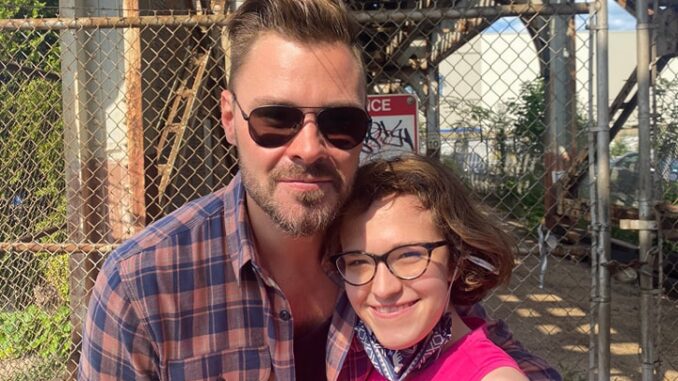
When Chicago P.D. first introduced Officer Kim Burgess in Season 1, she was a wide-eyed, energetic patrol cop with ambition in her stride and optimism in her voice. Played with undeniable warmth and grit by Marina Squerciati, Burgess was instantly lovable — a breath of fresh air in a unit often shrouded in darkness. But as the seasons unfolded, so did Kim’s depth. Her arc is one of the most transformative in the Chicago P.D. universe. She has evolved from a hopeful rookie into a resilient, battle-scarred detective whose strength is forged through trauma, heartbreak, and unwavering commitment to justice.
In the early days of the show, Burgess served as the moral compass of the department. While others bent rules or blurred ethical lines, she was earnest, idealistic, and unshakably kind. Her partnership with Officer Kevin Atwater brought humor and heart to the squad car, giving the audience moments of levity amid the show’s gritty tone. She wasn’t perfect — she made mistakes, questioned herself, and often had to prove that she belonged. But there was never any doubt that Burgess had something special: a desire to do good for the right reasons.
Climbing the Ranks — and Facing the Cost
As Burgess moved up in the ranks and eventually joined the elite Intelligence Unit, the job began to take its toll. The shift wasn’t just in her uniform — it was in her spirit. The lines between justice and survival blurred, and Kim had to learn to navigate a world where compassion was sometimes a liability. Despite facing sexism, doubts about her capabilities, and even being passed over for promotions, she never allowed those obstacles to define her. Each setback made her sharper. Each injustice fueled her fire. But it was in the personal losses that we saw Burgess’s strength truly tested.
The Pregnancy, the Pain, and the Rebirth
One of the most emotionally devastating moments in Burgess’s arc came in Season 8, when she lost her unborn child following a brutal assault. It was a moment that shattered both the character and the audience. The scene was raw, heartbreaking, and bravely performed by Squerciati. Burgess was not just physically broken — she was emotionally lost. Yet in the episodes that followed, she didn’t spiral into self-pity. She carried her pain with quiet dignity, choosing to heal not by forgetting, but by fighting harder. This tragedy changed her — but it didn’t define her. It revealed her.
Burgess and Ruzek: Love, Loss, and Loyalty
The relationship between Kim Burgess and Adam Ruzek has been one of the most emotionally complex dynamics in Chicago P.D. Over the years, they’ve gone from partners to lovers, to exes, to co-parents, and somewhere in between. Their bond is messy, layered, and deeply human. What makes their relationship so compelling is not its romance — it’s their loyalty. No matter how much pain or misunderstanding passes between them, they continue to show up for each other. Their decision to raise Makayla together, despite not being a couple, showed emotional maturity and a deep-rooted sense of responsibility. It’s a relationship that reflects real-life love — not always easy, not always tidy, but grounded in shared experience and respect.
Makayla: A New Kind of Strength
When Burgess took in Makayla, a young girl orphaned by violence, it marked a new chapter in her story. As a guardian, Kim now had more than just her badge to protect — she had a child who depended on her for safety, love, and stability.This new role didn’t make her softer. It made her stronger. Kim began making decisions not just as an officer, but as a mother. She carried her trauma while shielding Makayla from the harshness of their world. In one of the series’ most emotional arcs, when Makayla was kidnapped, we saw a side of Burgess that was ferocious, raw, and utterly human. It was no longer about the badge — it was about survival. And Kim didn’t just survive. She endured.
The Woman Behind the Badge
What makes Kim Burgess such a powerful character isn’t just her professional growth — it’s her emotional evolution. She has faced loss, betrayal, fear, and failure. She’s been shot, broken, and pushed to the edge. And yet, she remains. She continues to show up. For the job. For her daughter. For herself. Her journey is one of the most authentic portrayals of strength on television. It doesn’t come in the form of brute force or flawless decisions. It comes in choosing to get up after every fall. In continuing to believe in justice even when the system fails. In loving even when it hurts. Fans of Chicago P.D. connect with Kim Burgess not because she’s perfect — but because she’s real. She is the everywoman in a world that demands superhuman resilience. She is empathy in a department filled with emotional walls. And she is proof that vulnerability and strength are not opposites — they are allies.
